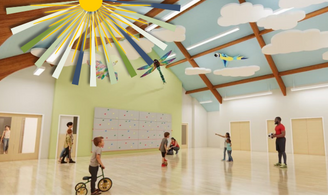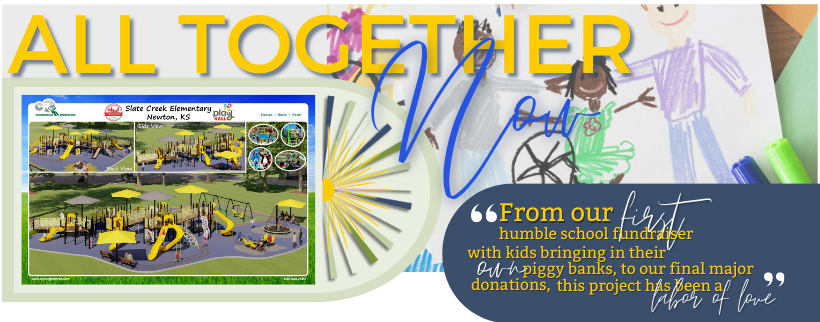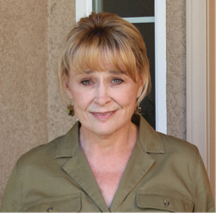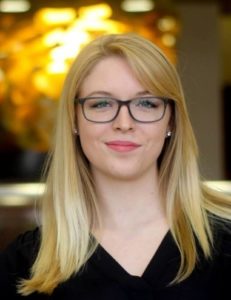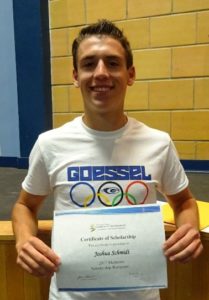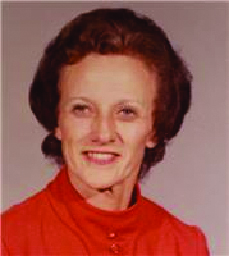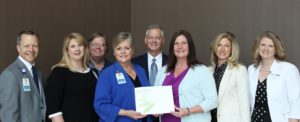Hello from the community foundation!
As you gear up for the holidays and build your year-end checklist, the community foundation is here for all of your charitable giving “to do’s.” Whether you’ve been a fund holder at the community foundation for years, or you’ve just established a fund or are considering doing so, our team can help.
In this issue, we’re focusing on three topics to help enrich your experience with charitable giving.
Beyond the donor-advised fund. Many of you have established a donor-advised fund with the community foundation or are considered doing so. Donor-advised funds are terrific vehicles and there are good reasons for their popularity. What you might not know, though, is that your donor-advised fund can serve as an important hub for all of your philanthropy and pave the way for you to expand your giving strategies into issue-specific giving, family giving, and legacy giving. Learn how the community foundation can serve as your comprehensive philanthropic partner.
Structure helps family philanthropy thrive. Families don’t always get along perfectly, which is no surprise! But there’s no need for even minor family disagreements to derail well-intentioned charitable giving that allows a family to rally around favorite causes. Remember that the community foundation can serve as a sounding board, advisor, and facilitator, whether your family organizes its giving through a donor-advised fund, private foundation, or a combination of both.
Sunset is coming. Winter days are not alone on the horizon! No doubt you are hearing more every day about the scheduled sunset of the gift and estate tax lifetime exemption. Without intervening legislation, the exemption will drop back down to 2017 levels–which means it will be cut in half. That’s huge, because many more families will find themselves potentially subject to future estate tax. Charitable giving can help, though! This is a good time to talk with the team at the community foundation about how to start planning your charitable giving to reduce the potential impact of the lower exemption in 2026.
Wishing you all the best for the holidays!
Angie Tatro, CEO
 Your donor-advised fund: Think “hub,” not “autopilot”
Your donor-advised fund: Think “hub,” not “autopilot”
Perhaps you established a donor-advised fund at the community foundation years ago, or you set up a donor-advised fund more recently. Or maybe you are considering establishing a donor-advised fund at the community foundation this year to help you keep your giving more organized and involve your children and grandchildren in your philanthropic priorities.
Whatever the case may be in your situation, it’s a great idea to consider a few best practices for ensuring that your donor-advised fund is making the biggest difference possible for the causes you care about. Life gets busy, the months fly by, and it’s tempting to put your donor-advised fund on autopilot. But that would be a missed opportunity.
By now, you likely know that a donor-advised fund at the community foundation offers the convenience of a one-stop-shop: You make tax-deductible contributions of cash (or, ideally, appreciated stock) to the fund, and then recommend grants to your favorite charities. Make sure you’re leveraging your donor-advised fund to execute the full range of your charitable giving each year. You’ll find it so much easier to keep track over time of where you’re giving, and how much.
As the hub of your charitable giving, the community foundation certainly makes it easy for you to use your donor-advised fund for your annual giving to charities. But that’s not all. As you work closely with the community foundation, you’re likely to discover even more ways our team can support your philanthropic activities:
–We can help you establish a designated or field-of-interest fund to complement your donor-advised fund. A designated fund allows you to support a specific charity over the long term, while a field-of-interest fund focuses your support on a particular area of community need by leveraging the community foundation’s expertise. If you are over the age of 70½ and you own one or more IRAs, your designated fund or field-of-interest fund can receive Qualified Charitable Distributions up to $100,000 per year per spouse, bypassing your taxable income.
–We can work with you and your attorney to help you establish a bequest in your estate plan to support your favorite causes beyond your lifetime. Many fund holders at the community foundation name their donor-advised funds, field-of-interest funds, designated funds, or even the community foundation itself, as beneficiaries in their wills and trusts, and especially as beneficiaries of IRAs and other qualified plans because doing so delivers significant tax benefits. What’s more, the community foundation offers opportunities for our legacy donors to get together and learn from each other as a group. If you’re not involved as a legacy donor already, please reach out and we’ll fill you in!
–We can help you and your family learn more about your favorite nonprofit organizations and the issues they are addressing so that you can become more informed and effective philanthropists in our community. The community foundation team’s unparalleled, deep knowledge of local issues and organizations is a real advantage for you and your family. When you better understand the needs of the community and how your favorite nonprofits are addressing those needs, you’ll be better equipped to structure your giving so that it makes a difference in measurable ways. You’ll enjoy your charitable giving a lot more, too.
We hope you’ll consider your donor-advised fund–and your connection with the community foundation–as the hub of your philanthropy. The team at the community foundation is here to help you make the most of your donor-advised fund and related strategies so that you’re not only putting your money to work to improve the quality of life in our community, but you’re also achieving financial and philanthropic goals for your overall charitable giving.
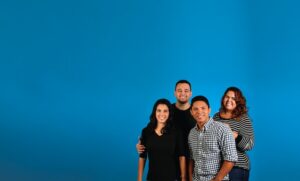 Structured philanthropy: A process relieves the pressure
Structured philanthropy: A process relieves the pressure
Helping families create a meaningful structure for their philanthropy has long been a hallmark service of the community foundation. That structure and the resulting discipline are increasingly important as both wealth and charitable giving more frequently span multiple generations. Indeed, spontaneous and unstructured conversations around wealth and philanthropy can be a source of family discord.
By being part of the discussion–whether formally or informally, at the table or behind the scenes–the team at the community foundation can help families resolve issues and smooth out the edges around common intra-family challenges, including communication, decision-making, and charitable giving.
Here are a few of the ways the team at the community foundation can help:
–Serving as a coach to foster thoughtful, intentional, and inclusive family conversations, even if the community foundation team member is serving simply in an “ice-breaker” role.
–Offering guidance from the position of a facilitator to assure that all voices are heard, particularly as views across generations can differ.
–Helping a family structure a series of discussions that employ a phased-in or “dimmer-switch” approach, beginning with values-centered discussions to identify common ground and progressing to systematic funding and allocation conversations and decisions.
The community foundation can work with a family under a variety of circumstances. For example:
–Some families enjoy organizing their charitable giving through both a private foundation and a donor-advised fund at the community foundation. The team at the community foundation can serve as a sounding board for grant making from both vehicles and also work with a family’s tax advisors to help optimize the role and use of each vehicle.
–Many families have found that a donor-advised fund at the community foundation meets all of their charitable giving needs, and they appreciate the community foundation taking on the administrative burden associated with tax filings and administration. In some cases, a family decides to close their private foundation altogether and transfer the assets to a donor-advised fund at the community foundation.
–Some families leverage the community foundation for the full suite of its charitable giving services, often using a donor-advised fund in much the same way they’d use a private family foundation, only with increased privacy and no need to create a separate legal entity, thanks to the community foundation’s umbrella 501(c)(3) status.
By consulting with the team at the community foundation, and leaning into the structure that’s right for them, families can help their favorite community causes—and keep the peace across generations.
 Three things every philanthropist must know about the gift and estate tax sunset
Three things every philanthropist must know about the gift and estate tax sunset
The shorter days of fall and winter aren’t the only sunsets creeping up on people these days. If you’ve met with your estate planning attorney and tax advisors recently, you’re probably aware that the gift and estate tax exemption–the total amount you can leave to family and other beneficiaries during life and at death before the hefty federal gift and estate tax kicks in–is about to drop, rather precipitously.
Without legislation to prevent it, on January 1, 2026, the exemption will drop from $12,920,000 per person (that’s the 2023 exemption) to about half of that amount, depending on annual inflation increases. As the date gets closer, tax planning decisions get tougher. Make aggressive moves now to activate gifts to family members? Or hold out to see if legislation intervenes to prevent the sunset?
Understandably, some philanthropists are beginning to get concerned about what their legacy might look like when (and if) the exemption drops. Add to that uncertainty the fact that a person’s date of death is among life’s great unknowns, it’s no wonder that for the relatively few taxpayers who may be impacted by gift and estate taxes—at least for now—there’s both concern and confusion.
Here’s a quick review of the facts:
–For 2023, the estate tax exemption is $12.92 million per individual, $25.84 million per married couple, and for 2024, the exemption rises to $13.61 million and $27.22 million, respectively, adjusted for inflation, as recently announced by the IRS.
–The IRS will issue inflation adjustments for 2025, too.
–For 2026, the exemption is scheduled to fall back to 2017 levels, adjusted for inflation, which would roughly total $7 million per person.
Here are a few strategies you might consider evaluating with your tax advisors now to advance your estate plan and your philanthropy plan:
–If you are a business owner, you could explore launching a gifting program to transfer shares of your business not only to heirs, taking advantage of the higher exemption, but also to your donor-advised or other fund at the community foundation. The objective here would be to begin intentionally reducing the value of your estate, assuming that the estate tax exemption will rise, while also executing a business transition plan that meets your overall intentions regardless of the tax laws. (As with any gift of a hard-to-value asset, securing a qualified appraisal is essential, as is timing; shares can’t be gifted to a charity if a sale is effectively already in process. The IRS watches both very closely.)
–Annual exclusion gifts ($17,000 per gifting spouse per recipient in 2023, increasing to $18,000 in 2024) to family members and other individuals are an effective way to reduce the value of a taxable estate without eating into the lifetime gift and estate tax exemption. Indeed, many philanthropic individuals use the annual exclusion technique as inspiration for their charitable gifts. Gifts to charities are deductible for gift and estate tax purposes (as well as for income tax purposes) and therefore also serve to reduce the value of a taxable estate without eating into the exemption. Some philanthropists report that they like the idea of making annual exclusion gifts to each family member and then using their donor-advised fund at the community foundation to make annual exclusion-amount gifts to each of the charities they support.
–Work with your tax advisors and the team at the community foundation to run various financial scenarios to determine whether the exemption sunset will affect you and if so, to what extent. If you find yourself looking at a potentially significant taxable estate in a couple of years, consider increasing your bequests to your donor-advised or other fund at the community foundation. Amounts passing to the community foundation or other qualified charity upon your death are not subject to estate tax. This means your charitable priorities will receive 100 cents on every dollar in the taxable portion of your estate, while your family and other beneficiaries could receive 60 cents on the dollar–or even less.
As always, the team at the community foundation is here to help you navigate the opportunities and pitfalls presented by changes in the tax law. It is our pleasure to work with you and your advisors to maximize your charitable goals.
This newsletter is provided for informational purposes only. It is not intended as legal, accounting, or financial planning advice.
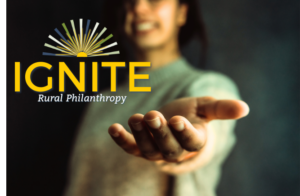 The Dick and Dorothy Miller Hands-Up Grant is a Godsend for the recipients of this fund. This funding is dedicated to keeping families with children from becoming homeless. The families helped have been single mothers with children; single fathers with children; intact families; grandparents who are, unexpectedly, raising grandchildren.
The Dick and Dorothy Miller Hands-Up Grant is a Godsend for the recipients of this fund. This funding is dedicated to keeping families with children from becoming homeless. The families helped have been single mothers with children; single fathers with children; intact families; grandparents who are, unexpectedly, raising grandchildren.
